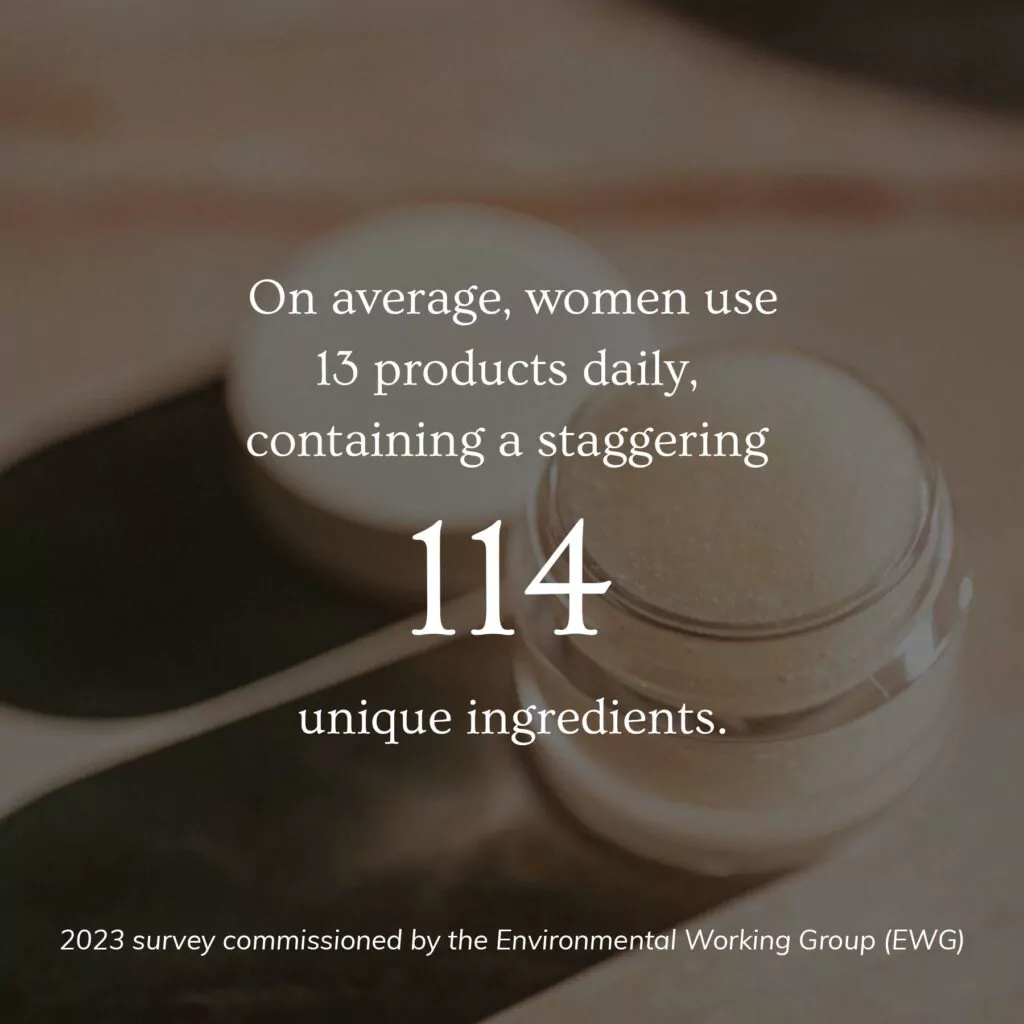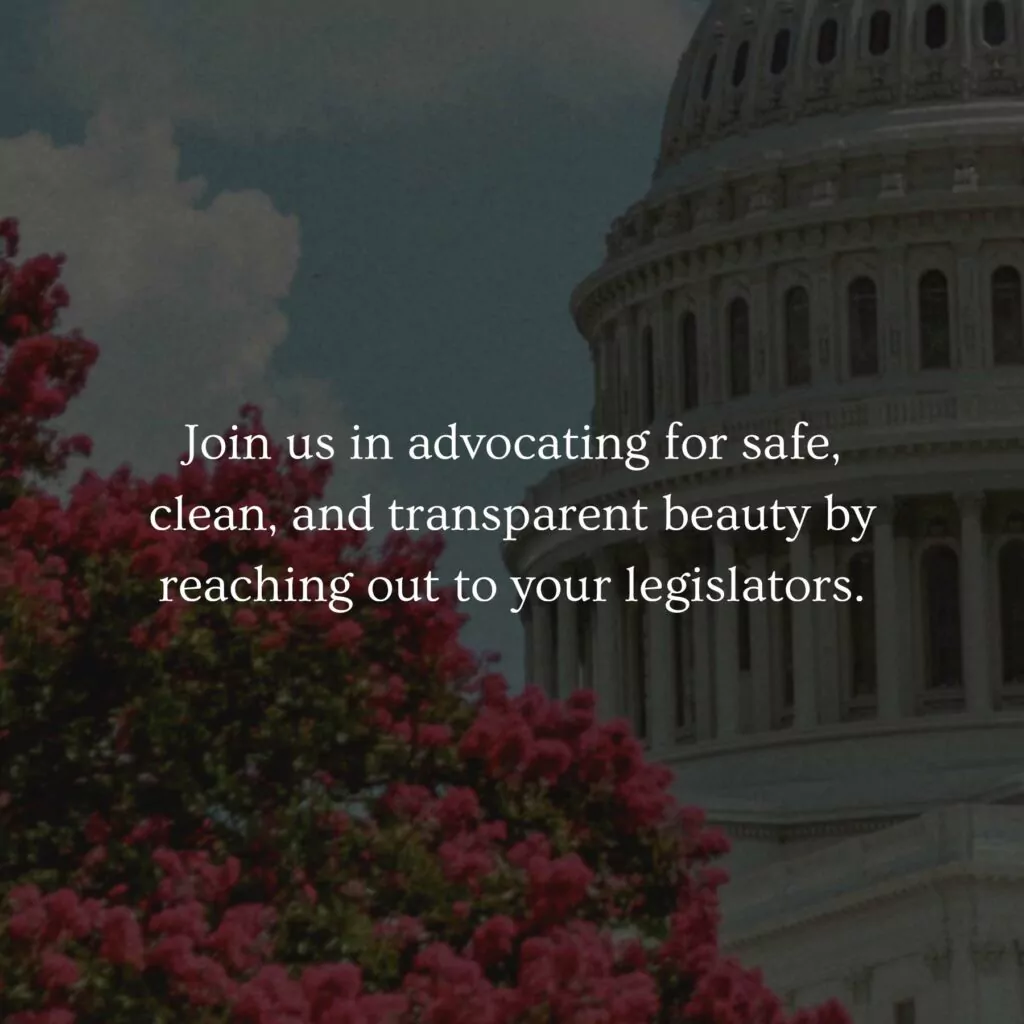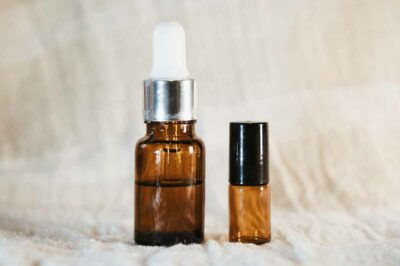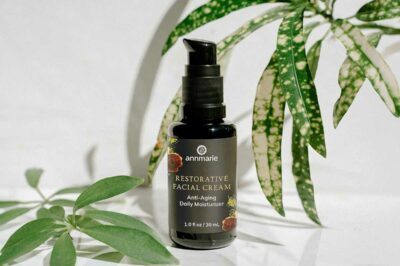Table of Contents[Hide][Show]
At Annmarie Skin Care, we’re committed to not only bringing you the finest organic skin care products but also keeping you informed about important developments in the beauty industry. Today, we want to shed light on a significant milestone that’s poised to change the way we think about cosmetics—the Modernization of Cosmetics Regulations Act (MOCRA).
Picture this: a world where you can trust every skin care product you lay your hands on, where transparency reigns supreme, and where your well-being is at the heart of every beauty formula. That’s the vision that MOCRA is bringing to life.
In a momentous development nearly a year ago, the Modernization of Cosmetics Regulation Act of 2022, or MoCRA, was signed into law. This landmark legislation marks the first significant update to the Federal Food, Drug, and Cosmetic Act since 1938. MoCRA, which officially went into effect on December 29, 2023, represents a vital shift in the world of cosmetics and personal care products.
MoCRA: Strengthening Cosmetics Oversight
MoCRA grants the Food and Drug Administration (FDA) much-needed changes over cosmetics, introducing essential elements such as recall authority, facility registration requirements, and improved labeling standards. These measures aim to enhance the safety and transparency of cosmetics, a crucial aspect of our daily beauty routines.
A Welcome Step, But More to Be Done
While MoCRA is undoubtedly a step in the right direction, it’s important to acknowledge its limitations. MoCRA does not compel the FDA to review or restrict harmful chemicals found in personal care products. This stands in stark contrast to over 80 other countries that have taken comprehensive actions to safeguard their citizens from chemicals linked to cancer and reproductive harm. Notably, the European Union continues to rigorously review chemical safety, having banned 29 ingredients in 2023 alone—nearly three times the total ingredients banned by the FDA in its history.
Why this matters
It’s a concerning truth that, on average, individuals in the U.S. come into contact daily with about four ingredients in their personal care products that pose significant health risks. Two of these are linked to cancer, while the other two can adversely affect reproductive and developmental health. This issue is particularly acute for women, as they generally use a broader array of personal care products than men, increasing their exposure to these potentially dangerous ingredients. These ingredients are often found in everyday items such as body care, skin care, and cosmetics.

A 2023 survey commissioned by the Environmental Working Group (EWG) paints a vivid picture of our daily product usage. On average, women use 13 products daily, containing a staggering 114 unique ingredients. Men, although using fewer products, still encounter 105 unique ingredients daily. This marks a significant increase from a 2004 EWG study, which reported men using only six products containing 85 unique chemicals.
Empowering Change with MoCRA
While acknowledging the work still ahead, it’s crucial to highlight the positive changes MoCRA brings to the table. The legislation empowers the FDA with new authorities that enhance cosmetics oversight. Check out the changes below!
Reporting Adverse Events
MoCRA expands the definition of serious adverse events for cosmetics, improving transparency. Starting July 1, 2024, companies must report such events within 15 days, with records maintained for six years.
Recall Authority
The FDA now has the power to intervene in health-related events caused by cosmetics, enabling the agency to request recalls. Non-compliance can result in an immediate halt to distribution.
Facility Registration
Cosmetic facilities must register with the FDA by July 1, 2024. New facilities need to register within 60 days of production or by February 27, 2024. The FDA has even launched Cosmetics Direct, a portal for companies to register facilities and list their personal care products.
Good Manufacturing Practices
MoCRA grants the FDA authority to establish standards for cosmetic facilities, emphasizing quality control and sanitary conditions. This aims to prevent adulteration or contamination of personal care products and streamline FDA inspections to ensure product integrity.
Improved Labels
Starting December 29, 2024, product labels must include domestic contact information for reporting adverse events.
Disclosing Fragrance Allergens
Beginning July 29, 2024, fragrance allergens must be labeled on personal care products.
Safety Substantiation
Companies are now required to maintain records supporting safety substantiation, even though the FDA isn’t mandated to review them.
Talc-Containing Cosmetics
The FDA must develop a rigorous screening method to detect asbestos, a deadly human carcinogen, in talc used in personal care products. In 2020, lab tests commissioned by EWG found asbestos in almost 15 percent of talc-based cosmetics samples, including products marketed to children.
PFAS in Cosmetics
The use of toxic “forever chemicals” known as PFAS in personal care products will undergo a safety and risk assessment based on scientific evidence, potentially through collaboration with the National Center for Toxicological Research. A summary report of the findings must be issued within three years.
The Role of State Laws
While MoCRA is a critical step, it’s important to recognize that states play a pivotal role in regulating cosmetics ingredients. MoCRA preserves the authority of states to ban or regulate chemicals of concern in personal care products, filling the void left by federal action.
Twenty states have already passed laws limiting specific substances in cosmetics, including California, Colorado, Florida, Hawaii, Illinois, Iowa, Maryland, Minnesota, Montana, Mississippi, Nevada, New Jersey, New Mexico, New York, Ohio, Oregon, Vermont, Virginia, Washington, and Wisconsin. These states have implemented stricter limits on various chemicals, addressing concerns about their potential health effects.
Take Action

As we embrace this transformative journey, let’s remember that clean beauty isn’t just about what we put on our skin—it’s also about the impact on the planet. MOCRA aligns with sustainable practices, ensuring we coexist consciously with Mother Earth while pursuing our beauty rituals.
Now that you’re all pumped up about MoCRA and the positive changes it’s bringing to the world of natural beauty, it’s time to take action! We believe that every voice counts, and you have the power to make a difference.
Join us in advocating for safe, clean, and transparent beauty by reaching out to your legislators. They need to hear from you, the passionate and informed consumers who care deeply about what goes on their skin.
Head over to our Safe Beauty Care Advocacy page to get all the tools and information you need to contact your legislators. Let them know why you support strong reform in the beauty industry. Together, we can make our voices heard and ensure a brighter, safer, and more beautiful future for natural beauty.
Your advocacy matters, and together, we can be a driving force for positive change in the cosmetics industry. Join us today, and let’s create a world where clean, safe, and effective beauty products are the norm! 💪💚








Leave a Reply